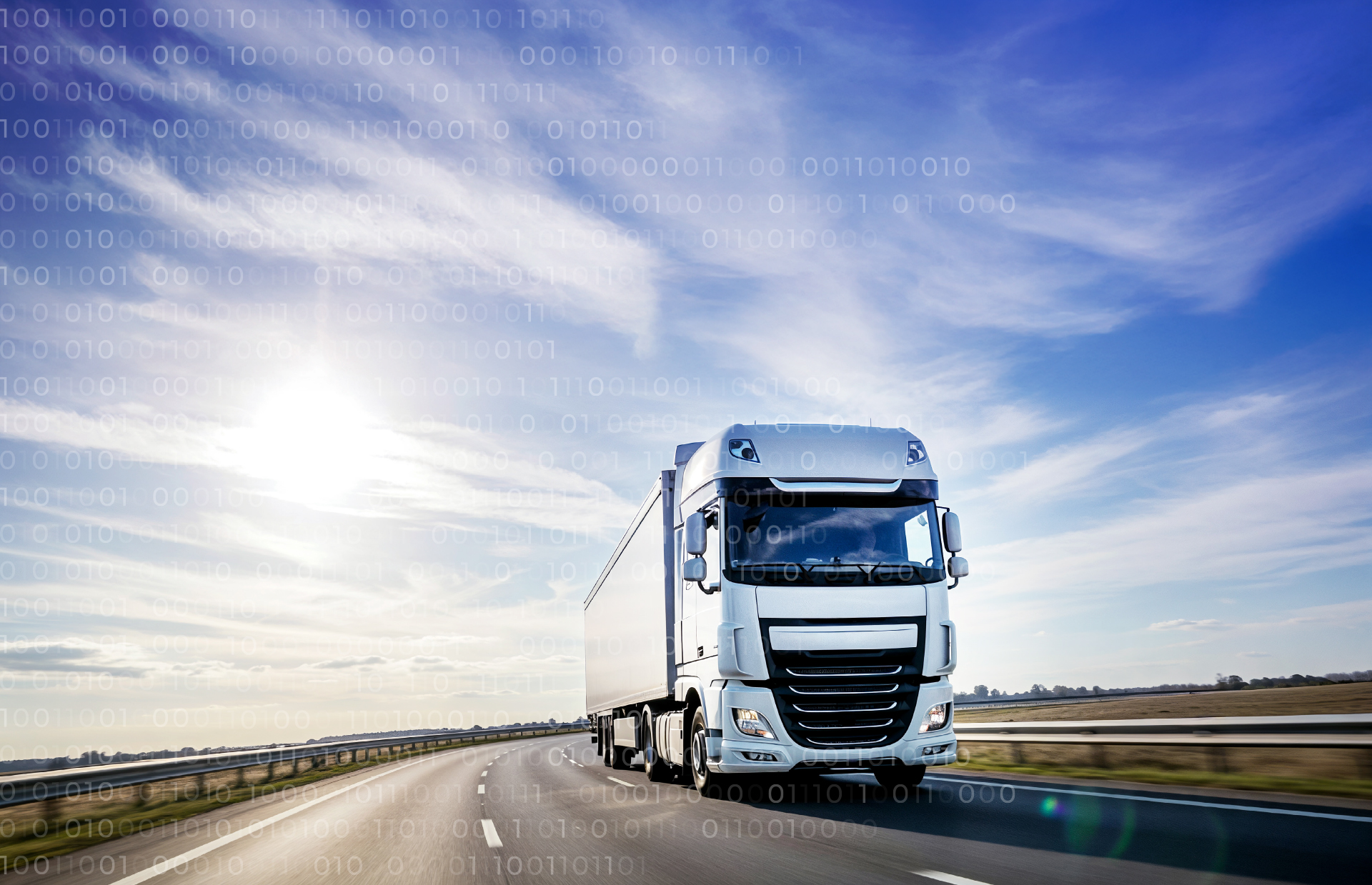
DOSSIER. Over the last 5 years, road freight transport in Bourgogne-Franche-Comté has experienced strong growth, driven by domestic traffic flows. However, at the moment there is a slowing down, but this does not prevent some business leaders from maintaining their enthusiasm. Logivia provides us with a good illustration of this.
With a slight increase in inflows, a decrease in outflows, but an explosion in domestic traffic: in five years, road freight transport has recorded an overall increase of 6.2% in Bourgogne-Franche-Comté. However, in 2018, the trend is towards a slowing down, as the INSEE points out in its regional economic assessment. "After a strong increase of nearly 8% in 2017, regional road freight transport increased by only 1% to reach 14.6 billion tonne-kilometers, an increase below the national level", is its conclusion.
Slowdown in intra-regional traffic
The slowdown is particularly acute in the intra-regional sector, which had, up until now, been the main source of growth. It fell by 3%, after a sharp 31% increase in 2017, "a year in which the economic situation was particularly favorable", says the INSEE assessment.
Extra-regional trade is more resilient: incoming freight increased by 2.7% and outgoing freight by 2.3%. "The inflows and outflows each reach 5.3 billion tonne-kilometers and so balance out," INSEE analyses.

Source: SOeS
2019 also brings its share of uncertainties. "The beginning of the year was pretty good. But in September-October, things were seriously flagging, with the exception of commercial activities that are boosted by the Christmas period. As for the last quarter, surveys among business leaders revealed a certain pessimism," explains Philippe Demonteix, regional delegate of the FNTR (French Road Transport Federation).
The structure of traffic flow is marked by the agricultural and industrial roots of the regional economy. "Grouped goods transport represents about 25% of traffic, agricultural material and forestry 20% and beverages and food products around 13%," says Sylvain Baudry, Logivia's general manager.
Driver shortage
According to a report from the OPTL (Prospective Observatory of professions and qualifications in Transport and Logistics), the Bourgogne-Franche-Comté region has 1,100 establishments in the freight transport and logistics sector, including 878 in road freight transport. It is of course home to many VSEs, as everywhere, but also to big players such as Transports Alainé, Rave, Cayon, Sobotram, Picq & Charbonnier, Régis Martelet, etc...
Despite the downturn in activity, especially in the general goods sector, the shortage of drivers remains the major problem facing companies." The workforce shortage is a real hindrance for our growth. I had 10 additional trucks planned for October, except that I do not have a sufficient number of drivers," Christophe Charbonnier testified a few weeks ago in the columns of the French magazine L’Officiel des Transporteurs.
The example of Logivia: a new managerial approach
Logivia, a transport specialist for the agricultural sector, confirms the situation. "We have little turnover, but recruitment, if only to replace retirement leavers, is complicated," notes Sylvain Baudry. The firm has chosen to address this question within the framework of a global reflection that has its starting point in the place that the company holds in society. "The traditional business model no longer works. After decades of growth, social justice is returning to the heart of challenges faced by the economy" says Sylvain Baudry, Logivia's General Manager.
This observation led the director to first review the managerial approach. "We have chosen to have a very light managerial structure, which has a twofold advantage: empowering employees and limiting costs. Our structure's costs thus represent 2.7% of our turnover, compared to more than 10% for a conventional carrier," Sylvain Baudry estimates.
Employees are also involved at the heart of the company, being solicited beyond their primary missions. Drivers, for example, participate in the choice of vehicles, but may also be involved in the analysis of transport schedules, for which their field experience is invaluable.
Training and communication
Sylvain Baudry also insists on the importance of training. "Apart from compulsory training, of course, the driver's profession is one of the least trained, despite the fact that technology is evolving rapidly. It is important to guarantee the employability of our staff members". In this area, the General Manager also regrets the reform of the rules for financing training in companies with more than 50 employees, which may curb the enthusiasm for it.
The managerial transformation also gives a high priority to communication. "It is important to continue to explain our actions and decisions. Obviously, we must be consistent with our values. At Logivia, for example, we have carried out merger operations without compromising employment," says Sylvain Baudry.
Similarly, as part of Logivia's activities as an agricultural cooperative, the company subcontracts with 550 listed carriers. "It is out of the question for us to integrate extraneous carriers that carry out social dumping," Sylvain Baudry insists.
Integrating environmental concerns
Finally, the director does not hesitate to speak out on sustainable development in a way that goes somewhat against the usual discourse in the profession. "Given the environmental impact, there is no place for long-distance transport by trucks. This mode should be limited to short and medium distances. This, as it happens, applies to us. Of the 3.5 million tonnes we ship annually, we are mainly involved in regional transport, while also keeping in mind our environmental footprint," explains Sylvain Baudry.
The group is currently working on alternative energies with a project to switch to Compressed Biogas. The first truck will arrive in 2020 and around 50 others will join the fleet in two years' time, bearing in mind that Logivia actually has 150 vehicles. The engines of the vehicles we have chosen for this transition are manufactured in Burgundy," says the general manager. In addition, for the rest of the fleet, Logivia wishes to use a new fuel, Oléo 100, which will be produced from rapeseed from the region. "We're in a concept of circular economy. Our objective is to replace 100% of the diesel vehicles within 3-4 years," says Sylvain Baudry. In addition, like many carriers, Logivia has already succeeded in reducing its CO2 emissions by 14% in two years through driver training and flow optimization.
This approach, which takes into account new societal expectations, not only dusts off the profession's image, but is also proving to be economically efficient. Logivia claims a turnover multiplied by 3 in three years. "It's a tough profession, but it's still possible to turn a profit and respect your employees," concludes Sylvain Baudry.
Our latest articles
-
Subscriber 3 min 24/02/2026Lire l'article -
Hapag-Lloyd - Zim: a shipping deal with geostrategic implications
Lire l'article -
European road freight: the spot market is stalling
Lire l'article



